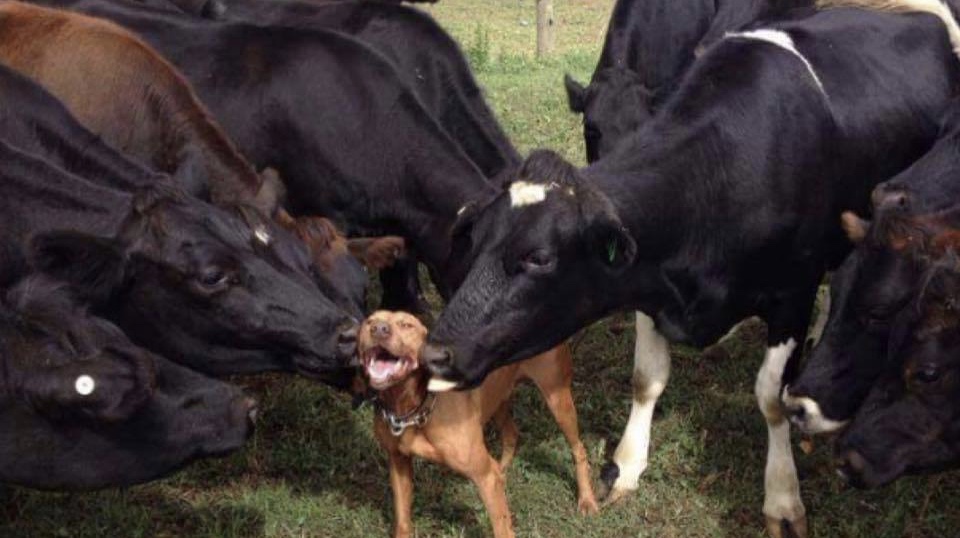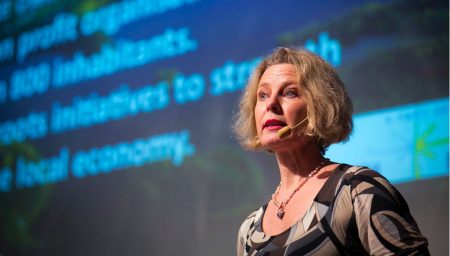Crowdsourcing Capital Vuollerim
Vuollerim has quickly become the world’s capital of the shared economy – although it has only 800 inhabitants and lies at the arctic circle in Sweden. Communication Works have talked to Eva-Lena Skalstad and Audun Otterbech to find out more about crowdsourcing. They heard that the world has to get rid of small kings, and why companies have to learn from the crowd – or be history.
5. February 2018

How does a little village like Vuollerim manage to host a big crowdsourcing event?
Eva-Lena: Crowdsourcing and grassroots, good intentions, actions, less money connect well with our village. Vuollerim is very good at practical things. Lapland Vuollerim is like a crowdsourced company for tourism and has a long experience of public events. Yes, it is a very small village of 800 inhabitants, but we have a long history of crowdsourcing and entrepreneurship. Vuollerim has 60 small businesses, 40 non-profit organisations and around eight crowd-based. In the village!
Audun: People have a high awareness if an initiative is for the common good, for the village, and contributes in a wider way. If I just have a small navel focus on my project and I just do it for getting good numbers for myself, which I can put in my pocket, it doesn’t resonate. Here I would say it is a tradition by many to contribute with time or in other ways for having an attractive village.
“Same shit new wrapping”?
There are many international speakers, even from major companies. How do you make sure that sourcing keeps being good for the crowd, that the crowd is not just being used for the sourcing?
Eva-Lena: I don’t think you can guarantee that anywhere. Birgitta Bergvall at Luleå University is doing research on negative consequences of crowdsourcing. If you start a project at the grass roots to transform to a more sustainable economy – of course, when it grows it can also have some negative developments. I think it’s good to be aware of that.
Audun: You can look at crowdsourcing as a tool, it can be used for good things and for bad things. We have a saying for it here: “You can easily end up with the same shit, just in a new wrapping”. That’s a risk with crowdsourcing. You have all these tools and platforms, they have to be filled from the inside with real content, or you end up with people chasing good numbers for themselves ruining our planet. Nobody wants to go there, but you need to be aware of it, and here the Crowdsourcing Week really is delivering top notch competence on what is happening in different areas of crowdsourcing.
Doing the common good
Eva-Lena: The Nordic Council has just done a report that says “Trust is the Nordic gold” . It’s about why we do the common good thing. For us, this is the meaning of crowdsourcing. Maybe that’s something that Vuollerim can contribute with. Everything will be bigger and better and more fun if you do things together for the common good, and not just for yourself.
How do you reflect on this aspect in this year’s conference in Luleå and Vuollerim?
Eva-Lena: The overall theme this year is decentralization. Society is growing so fast in this transformation process of crowdsourcing. One thing with the Crowd Sourcing Week is to contribute to accelerate a sustainable future. And another thing is to open up eyes, to raise consciousness for this big transformation of society that is going on. Whether small or big, if companies do not understand what is going on now, they will be history.
Of course, one can think that it is not so genuine with the big companies going into this. And it is difficult for us to judge, whether they are really trying to grasp what is going on and adapt, or not. My personal view is that if all companies have a genuine understanding of crowdsourcing things can go very fast.

Eva-Lena Skalstad
How does the program of the conference reflect the original philosophy of crowdsourcing?
Audun: The term crowdsourcing is extremely broad with things happening in different areas. We try to be broad, but at the same time this year’s main focus is decentralization. Examples include areas related to energy and green tech and also the growth and transformation of new business models. Personally, I find the potential for sustainable development combining collective intelligence with well intended processes in business and society most interesting.
Eva-Lena: There are so any parts in the crowd economy landscape that it affects everything. CSW has mapped 14 fields, and it is the sum of them that transforms society.
“They looked for money, they got friends for life”
What’s the difference between crowdsourcing and crowdfunding?
Eva-Lena: There are so many different initiatives. Vuollerim for example is in the field of the sharing economy. The big companies are in open innovation, and different aspects of funding, customer cooperation, social business.
Audun: When digital platforms do it bottom up what we do analogue in Vuollerim, there is a high understanding of both the need and the advantages. The core of open innovation: The crowd always knows more than the best of your experts. In a village or in a block in a city you have always have some kind of connection, you have manageable ways to make a community of developing things together. Start where you are, do what you want and see what happens.
Eva-Lena: Crowdsourcing Week tries to lift up different ideas and people in different fields – in the mix, amazing things can happen. But on your question concerning the difference between crowdsourcing and crowdfunding: The base is that the grass roots come together to solve a challenge with crowdsourcing. The challenge of financing is solved with crowdfunding.
Do you think that crowdfunding without other aspects – like steering models or involving the crowd in what the business model should look like – makes sense without the other aspects?
Audun: There may be different reasons for someone not to engage in other ways, while wanting to support financially. There are possibilities for that. Gift-based platforms for example, where you see a good case and you can choose to support their case financially and that’s more or less it. There are equity-based cases where you go in with money, get shares and you might even get a place on the board. Some people just want to go in with money where banks don’t and feel happy about that. But even when banks do, you can use it as a complement to the financing you need.
Eva-Lena: There are the very early platforms like Kiva which only gives study loans to students (https://www.kiva.org). There the student does not look for anything else than getting a loan. But there are more specialized project based platforms where people can contribute with many different things. I have heard about a Swedish movie project where they have asked people to contribute with money to make a film. And as e reward, you would a role in the movie. But they got a lot of people who wanted to contribute practically to the film. And when they looked back at the project, that was the most worthwhile for them. They also got the money, but they made friends for life. So, there are different levels of funding.
Getting rid of the small kings
What can cities learn from small grassroots communities like Vuollerim in terms of governance?
Audun: If you go to the core, it’s seeing the potential that there always is in humans. We must stop putting prestige obstacles in the way for cooperation. It is not important whose name is on a project. What’s important is that the whole world becomes better. I remember, Hjörtur, a participant of the first crowdsourcing week in Vuollerim. He said: “You have locally solved the biggest obstacle of all, getting rid of all the small kings standing in the way.” What Vuollerim is doing, can be done everywhere. Openness, trust, teamwork, taking existing resources for the common good. It’s not hard, but you need to let go of prestige and other limiting agendas in the collaboration.
Now I understand why real success in an innovation process doesn’t happen in many companies. It’s because most people’s egos are too big. They don’t want to take a step back and work towards a common goal without personally getting credit for it. This is something I have learned from Vuollerim. When you put your ego aside and work for a common purpose, then it is possible to achieve just about anything. Vuollerim is the future. Epi Ludvik Nekaj, Founder, CSW
Interview by Sabine Froning and Niels Reise.
Communication Work is partnering with CSW Arctic //Europe conference